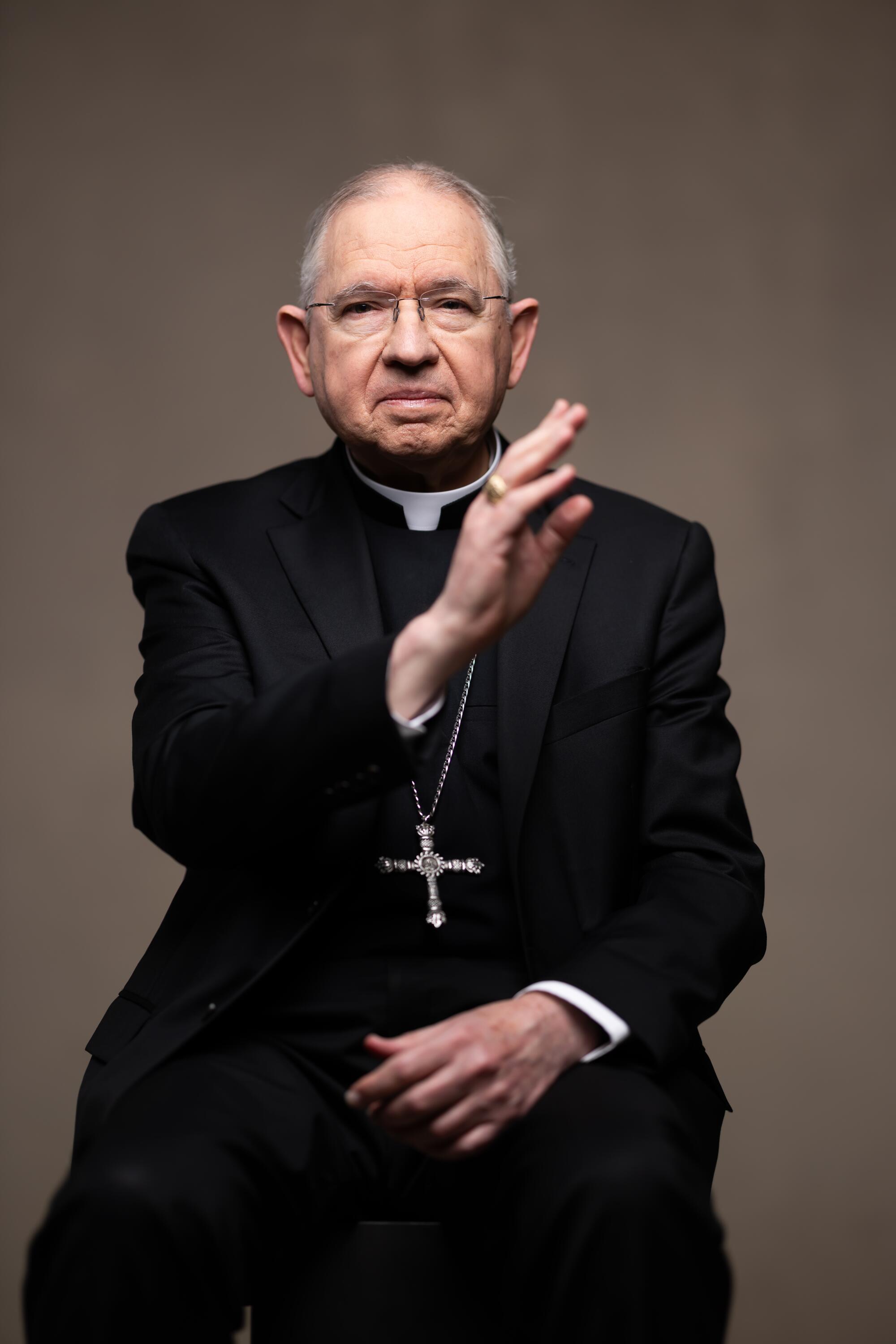
Since the first busloads of migrants began arriving in Los Angeles from Texas last summer, L.A. Archbishop José Gomez has steered the staff of the country’s largest diocese toward a clear mission: “to find a way to take care of them as much as possible.”
The trips have been grueling, 23-hour bus rides, often without food, that typically end at St. Anthony’s Croatian Catholic Church, which has served as a triage center for asylum-seekers. As Texas Gov. Greg Abbott, a Republican, has used the bus trips as a cudgel against Democratic policies on immigration, Gomez, himself an immigrant from Mexico, has asserted “the importance of welcoming immigrants” while engaging political leaders to work toward immigration reform.
Discover the changemakers who are shaping every cultural corner of Los Angeles. L.A. Influential brings you the moguls, politicians, artists and others telling the story of a city constantly in flux.
Gomez’s decades-long advocacy of immigrant and refugee rights is well-established (he has written a book on the subject). A growing number of critics, however, argue that he has recently expended less capital on supporting immigrants’ rights than on denouncing social justice movements and fighting culture war battles. They point, for example, to his 2021 attempt to deny Joe Biden the Eucharist because of the president’s support of abortion rights, and the bishop’s highly visible role in last summer’s protest against the Dodgers’ decision to honor a satirical nonprofit order of nuns for their charitable work on behalf of the LGBTQ+ community. Gomez is widely considered to be more conservative than Pope Francis. When the Vatican made an announcement in December that authorized the blessing of same-sex couples (though still upholding the church’s ban on gay marriage), Gomez’s office did not issue a response.
Criticism is to be expected of Gomez, 72, whose 2019 election as the first Latino president of the U.S. Conference of Catholic Bishops was a source of great pride within the country’s largest Latino population. Los Angeles is both very Catholic and progressive, something that can put many of the city’s 3.3 million Latino Catholics at odds with Gomez’s traditionalism.
Gomez’s decades-long advocacy of immigrant and refugee rights is well-established.
A shared commitment to immigration reform offers a path to bridge that divide. Some Catholics point to El Paso Bishop Mark Seitz’s immigrant rights advocacy as a guiding light for the church’s traditionalist wing. Seitz has pushed back against the church’s narrow focus on such issues as abortion because, he said, it can steer Christians to “turn a blind eye to real breakdowns in solidarity and dehumanizing policies,” such as the exploitation of immigrants. Seitz has prioritized direct outreach to migrants who have sought sanctuary within his West Texas diocese and promised “a new energy” in tackling the issue as the new head of the bishops conference’s migration committee.
When asked to address criticism of what some say is his more detached approach to the migrant crisis, Gomez referred to his book, saying immigrant rights have “been a priority for me, working on helping people to understand the value of the human person.”






